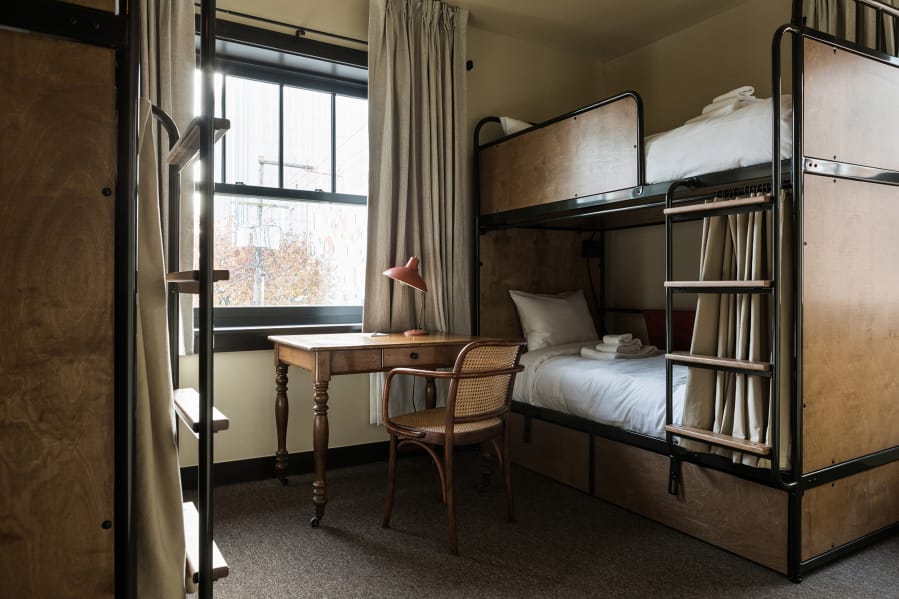Budget sleeping has never been so cool.
So cool, in fact, that some hostels are now self-identifying as hotels.
When I wrote about them five years ago, the gist was that hostels — where guests typically pay for a bed vs. a room and share bathrooms, kitchens and other common areas — were trying to ditch their reputation. Historically, the hostel is known as a bare-bones and predictably grungy spot for funky backpackers to sack out in Europe. But it’s been undergoing an extreme makeover. Hostels are growing in popularity in the United States, with properties that are squeaky-clean and rich in amenities, so artfully designed you could imagine them in a Dwell spread.
Those trends have only grown in the past five years, and I’m not surprised now to hear of hostels with swimming pools, handcrafted cocktails, art shows, live music, rooftop bars, curated tours, yoga classes and luxury suites. Kex, an Icelandic brand that opened a 29-room property in Portland earlier this month, has a 12-person sauna and a complimentary European-style breakfast with housemade preserves and freshly baked bread. Like other properties in this new batch of hostels, Kex wants to attract travelers of all stripes, not just the backpacker, so it’s dealing with the image problem by avoiding “hostel” altogether, calling itself a “social hotel.”
Generator, the affordable luxury European brand with 14 locations, including in Amsterdam, Berlin and Paris, once had “hostel” in its name, but dropped it when the company launched its first U.S. property last year in Miami’s South Beach.
“The name ‘hostel’ limited us too much,” said Alastair Thomann, Generator’s CEO. “I’m not sure if we’d kept it in whether Generator would have been as successful.” Generator has been so successful that in October, its parent company spent $400 million to acquire Freehand Hotels, a small U.S. hostel chain with a slightly more grown-up, intimate vibe than Generator. Both brands are known for their stunning, design-focused properties in hip urban neighborhoods; they’re boutique hotel-hostel hybrids with trendy restaurants and bars where guests can stay in bunk rooms or luxury private suites.



